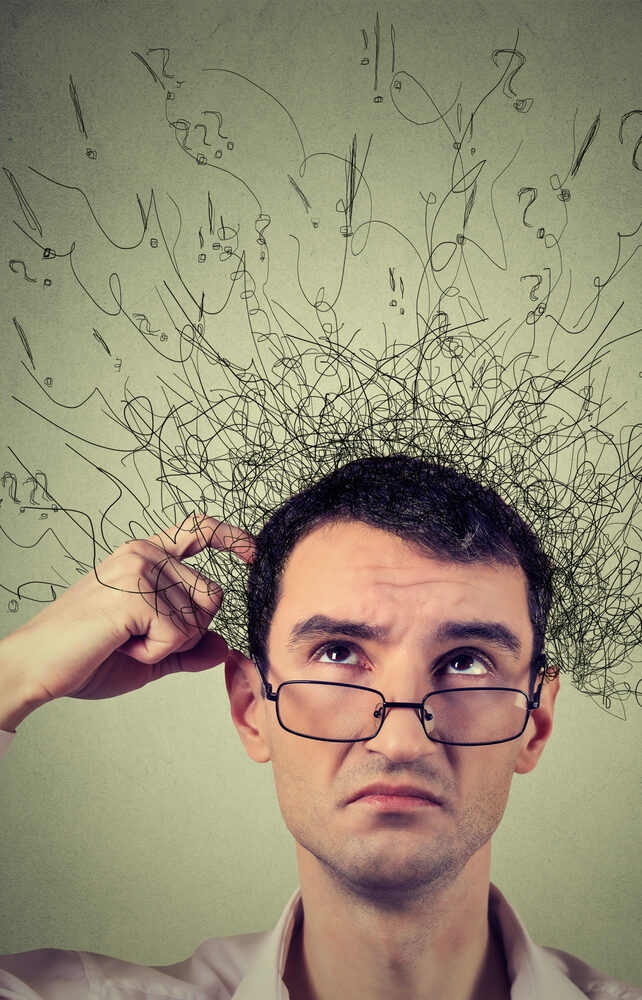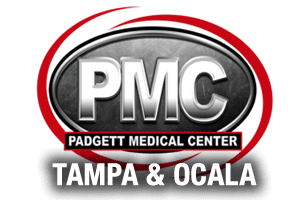
Adult ADD/ADHD Treatment
Attention Deficit Hyperactivity Disorder (ADHD) is a common neurodevelopmental disorder that affects both children and adults. While the symptoms of ADHD often begin in childhood, they can persist into adulthood and impact daily functioning. It is estimated that 4.4% of adults aged 18–44 have been diagnosed with ADHD in the United States. Adult ADHD can be difficult to recognize as symptoms vary and the disorder often co-exists with other mental health issues, but PMC is here to help.
Symptoms of Adult ADHD
Attention Deficit Hyperactivity Disorder (ADHD) can manifest in various ways, such as difficulty paying attention, impulsivity, emotional dysregulation, and hyperactivity. These symptoms can significantly affect an individual’s personal, professional, and social life.
Some common manifestations of ADHD in adults can include:
- Inattention: Difficulty focusing, forgetfulness, disorganization, frequently losing items, and trouble completing tasks.
- Hyperactivity: Restlessness, excessive talking, difficulty sitting still, engaging in multiple activities simultaneously, and feeling constantly “on the go.”
- Impulsivity: Interrupting others, acting without thinking, impatience, difficulty waiting for one’s turn, and making hasty decisions.
- Emotional dysregulation: Difficulty managing emotions, mood swings, irritability, and low frustration tolerance.
- Executive function deficits: Poor planning, difficulty prioritizing, time management issues, and trouble with problem-solving.

Causes & Diagnosis of Adult ADHD
The exact cause of ADHD is unknown, but research suggests that it is likely due to a combination of factors, including:
- Genetic factors: ADHD tends to run in families, suggesting a strong genetic component.
- Environmental factors: Exposure to certain toxins, such as lead, or maternal drug use during pregnancy may increase the risk of developing ADHD.
- Brain structure and function: Differences in brain structure, neurotransmitter levels, and overall brain function have been observed in individuals with ADHD.
Diagnosing adult ADHD can be challenging due to the overlap of symptoms with other conditions, such as anxiety or depression. A thorough assessment by a mental health professional, including a detailed personal and family history, is crucial for an accurate diagnosis. The diagnostic criteria for adult ADHD include the presence of at least five symptoms of inattention and/or hyperactivity-impulsivity that have persisted for at least six months and cause significant impairment in daily functioning.
Seeking professional help is crucial
Early intervention and appropriate treatment can significantly improve daily functioning and overall well-being.
Frequently asked QUESTIONS ABOUT ADULT ADHD
Adult ADHD (Attention Deficit Hyperactivity Disorder) is a neurodevelopmental disorder characterized by persistent symptoms of inattention, hyperactivity, and impulsivity that affect daily functioning in adults. While ADHD is often diagnosed in childhood, it can persist into adulthood or even go undiagnosed until later in life.
The primary difference between ADHD in children and adults is the presentation of symptoms. Adults with ADHD may exhibit less overt hyperactivity, and their symptoms may be more internalized, such as restlessness, impatience, or difficulty concentrating. Additionally, adults with ADHD may experience greater challenges with executive function, emotional regulation, and time management.
The most common symptoms of adult ADHD include:
- Difficulty focusing or sustaining attention on tasks
- Forgetfulness and disorganization
- Frequently losing items
- Restlessness and trouble sitting still
- Impulsive decision-making
- Interrupting others and excessive talking
- Difficulty managing emotions
- Poor planning and time management
The exact cause of adult ADHD is unknown, but research suggests it is likely due to a combination of genetic, environmental, and neurological factors. While there is no cure for ADHD, it is a manageable condition with appropriate treatment and support.
Adult ADHD can significantly affect various aspects of an individual’s life, including:
- Daily life: Difficulty with organization, time management, and completing tasks can lead to increased stress and frustration.
- Work: Inattention and impulsivity may result in decreased productivity, frequent mistakes, and difficulty meeting deadlines.
- Social relationships: Impulsivity, interrupting others, and emotional dysregulation can strain friendships and romantic relationships.
Two Convenient Locations
ADHD Tampa
- 6904 W. Linebaugh AveTampa, Florida 33625
- (813)-888-7710
ADHD Ocala
- 200 SW 8th StreetOcala, Florida 34471
- (352) 369-0104
JOIN OUR HAPPY PATIENTS



